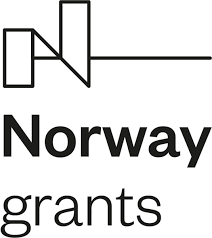Training on the application of electronic monitoring at different stages of criminal proceedings
On 12 and 13 April, the Ministry of Justice and Public Administration organised an education on the application of electronic monitoring at various stages of criminal proceedings.
Under the project “Strengthening human rights protection and public safety by improving the capacities of the Croatian Probation Service”, co-financed under the Norwegian Financial Mechanism 2014-2021, the training on the application of electronic surveillance at various stages of criminal proceedings (investigative home detention with the application of electronic monitoring and conditional release subject to electronic monitoring) was conducted for judges, state attorneys, heads of police directorates and civil servants of the Ministry of the Interior and the Ministry of Justice and Public Administration .The training was organised on 12 and 13 April 2023at the Hotel International in Zagreb, and was attended by the Deputy Head of the Diplomatic Mission of the Kingdom of Norway in Croatia, Ms Latif Homma. The training was opened by the Acting Director General of the Directorate for Prison System and Probation, Mr Zvonimir Penić, who emphasised the importance of introducing electronic monitoring, both from the perspective of relieving overcrowding in the prison system and the perspective of protecting the human rights of convicts.
In her lecture, Ms Mariane Vollan, President of Borgarting Court of Appeal, Norway, tried to answer two questions: why and how to use electronic monitoring in the criminal justice system, while Ms Kornelija Kallay Blažeković, a judge of the County Court in Velika Gorica, referred to the experiences and challenges of its application to paroled prisoners in Croatia.
Bergen State Attorney Bjorn Larsen gave a future perspective on the application of electronic monitoring both in the Kingdom of Norway and in the world, while Deputy County State Attorney Ksenija Jurin Panić presented a Draft Ordinance regulating its application during investigative home detention. Participants were also presented with electronic monitoring equipment procured by the Ministry of Justice and Public Administration, which is currently used for the monitoring of parolees.
In the final lecture, Ms Ivana Bilušić, a judge currently employed at the Ministry of Justice and Public Administration, who also acted as the moderator of the training, presented examples of good practice in the application of electronic monitoring and pointed out that she believed that electronic monitoring would soon become an important tool for monitoring convicts at various stages of criminal proceedings.





